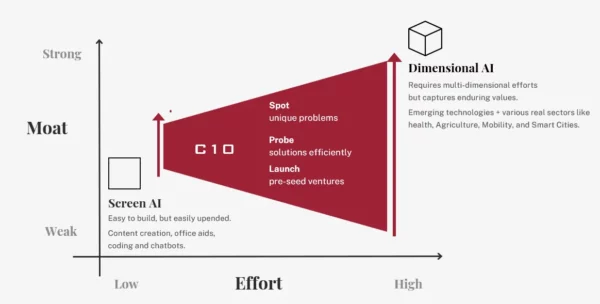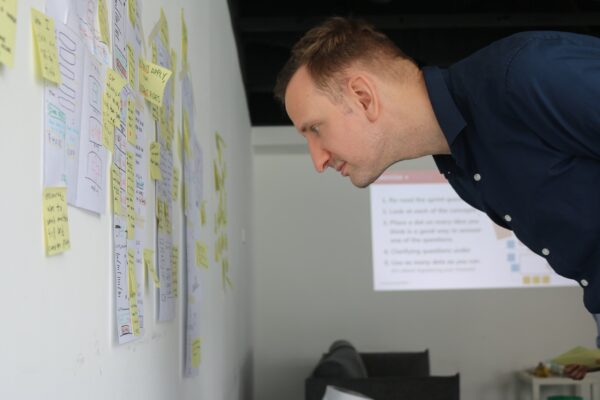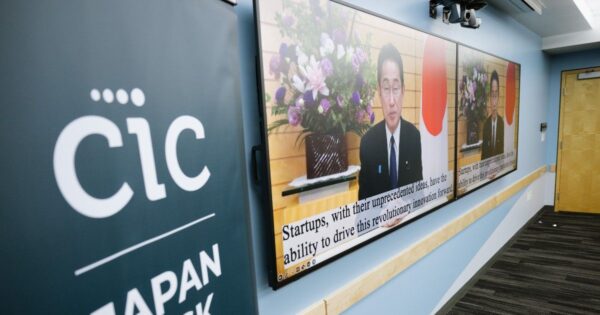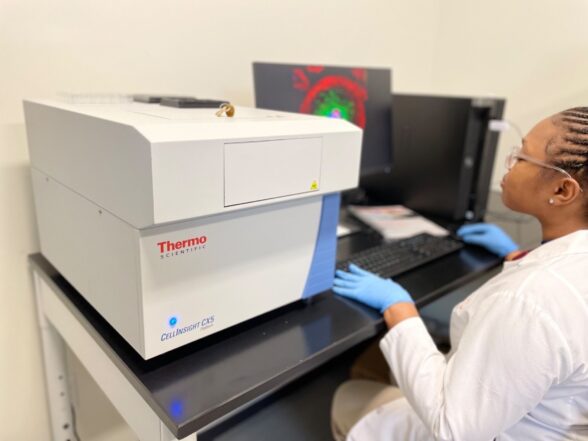In today’s globalized, technology-enable world, it is easier than ever to communicate across borders. Yet when it comes to doing business, navigating markets in faraway places can be surprisingly challenging. Entrepreneurship demands a variety of skills, determination, passion, and savvy — and taking one’s entrepreneurship overseas can add the challenges of a different business culture, time zone, or language.
The JETRO Innovation Program aims to facilitate this process for Japanese life sciences and healthcare startups looking to establish themselves in the Massachusetts life sciences ecosystem. Launching this fall, the JETRO Innovation Program will establish a cohort of about 20 startups who will learn about the Massachusetts ecosystem over a three-month period through tailored mentoring, pitch preparation, and networking. The hope is that this bootcamp, a collaboration between CIC and JETRO, will prepare Japanese startups as best as possible to forge successful connections with Boston area business partners and investors — and ultimately strengthen the pathway for business between the US and Japan.
With the bootcamp currently taking applications, we sat down with CIC Japan Desk Manager Jessy LeClair to discuss how the program prepares entrepreneurs for navigating the life sciences market, the unique compatibility of Japan and Boston, and how startups can find opportunity in today’s COVID-19 landscape.
CIC: This bootcamp is geared towards bringing Japanese startups into the Boston ecosystem. What is the draw of Boston?
Jessy LeClair: The opportunity for startups is that there’s such a concentration of life sciences industry players in the Boston area, from investors to pharmaceutical companies to other startups doing work in this space. The bootcamp can serve as a gateway into the larger US market because the industry and opportunities are so concentrated here in Boston and Cambridge.
CIC: As the Japan Desk Manager, you work on bridging the Japan and Boston innovation ecosystems. What pathways already exist between these two ecosystems and how do you see these two locations complementing one another moving forward?
JL: The Japan Desk has been working with JETRO for three years now on the Global Acceleration Hub. Now a new entryway between Japan and Boston is opening up with CIC opening a location in Tokyo. We’ve already seen this create opportunities for clients on the Cambridge side who are interested in going to Japan, as well as people on the Japan side who are interested in coming to the US. I think that the growing global network of CIC will create a lot more flow back and forth between the two regions.
CIC founder and CEO Tim Rowe meets with visiting Japanese innovators at CIC Cambridge last year. Bootcamp participants will work closely with members of the CIC network.
In terms of why these two ecosystems could be good players, a lot of the entrepreneurs that I see coming out of Japan were once academics. I think Boston is a good fit for them because Boston has so many educational institutes, and there are many startups that are launched out of institutions like MIT and Harvard. There’s a good fit there between the kinds of challenges that an academic in the US might face and the challenges a Japanese academic would have coming to the Boston ecosystem.
In the program, we may have very early stage companies, including those fresh out of academia, which is not an unfamiliar model in Boston from the perspective of other entrepreneurs, as well as potential partners and investors. That makes Boston an easier market for those academics compared to less academically-oriented cities.
CIC: What are some of those common challenges that people might face specifically coming from academia to business?
JL: Oftentimes academics are very skilled on a technical level but they might not know the business side; they’d make a great CTO but not a great CEO. So they need to hire someone who has a business background, while they handle the technical side. Academics have their strengths, and you need people who have that really deep technical knowledge. And then you also need to complement that to create a full, well-rounded startup package.
CIC: For this bootcamp you’re looking for life science and healthcare startups. Beyond this criteria, what makes for a promising startup for this opportunity?
JL: We’re looking pretty broadly right now — pre-registered companies to early-stage are fine. One important criteria is having some kind of intellectual property. Participants need to come in with a strong piece of technology that’s theirs. That also makes them attractive to potential partners or investors in the US, if they have a patent and IP coming with them.
The attitude of the founders is also important. We are looking for founders who are committed to thinking globally about their business and how they would really expand outside of Japan. So our hope is that participants get some traction through this program and talk to some partners that lead to longer-term relationships.
Startups will begin their bootcamp journey at CIC Tokyo, which opens in October 2020.
CIC: Let’s talk about the mentorship process. What is the value of that mentorship, and how does this potentially shape the trajectory of a startup?
JL: The mentor portion is already happening with the Global Acceleration Hub program that I mentioned earlier, so we’re applying a similar model to the bootcamp. However, what’s different is that here they will have one specific mentor assigned to their startup, who can see where they are and where they need to go in terms of coming to the Boston market. The focus is getting startups prepared to have high-quality conversations with potential investors and business investors. Mentors are going to be either local to Boston or have deep knowledge of the Boston ecosystem, so they can give very specific and targeted feedback to startups. Since they know the audience, how people think in Boston, and what the trends are, the mentors can help the startups craft and rigorously tailor their approach.
CIC: This bootcamp is taking place, of course, in the midst of the coronavirus pandemic. I’d love to talk about what that means for startups and for these industries as a whole. What are some challenges and opportunities we will likely see?
JL: Right now is an opportunity for international startups, like those from Japan. It’s always been challenging for startups from Japan. There are many practical issues for them — they’re so far away, it’s a 13-hour time difference…it’s really inconvenient. That might sound silly, but honestly setting up a meeting is difficult when you’re on the other side of the world.
Because everyone is moving virtually, it’s gotten rid of some of those barriers. Now startups don’t necessarily have to invest all that time and effort to physically come to Boston. People are more open to having virtual international meetings now that many of their domestic meetings are also virtual. It’s also making people rethink: Do we really need to travel all the time? Do we really need to ask people to come all the way to have these meetings? So I think it’s opened doors for startups.
Of course, some challenges still remain. The time difference is still there. Business in Japan has been relatively slow to turn digital. In fact, in 2018, Japan’s Ministry of Economy, Trade, and Industry published a report on digital transformation. The report predicted that Japan faced a “digital cliff” in 2025, risking losses of 12 trillion yen per year, if the country was not able to leverage new digital technologies and adopt existing ones. A surprising amount of business in Japan is done on paper or with technologies that look outdated in the US. So we’re seeing the bootcamp as a chance to educate people on how to thrive in this new digital world. We’re hoping to videotape the pitches and make a virtual pitch offering as one of the key things that startups can get out of this bootcamp. We want to be at the forefront of creating a new model for how to engage internationally as startups.
JETRO Innovation Program is taking applications for its Boston cohort through October 5, 2020.
Ready to learn more? View the full program description in English or in Japanese. Interested Japanese startups can apply directly here.






